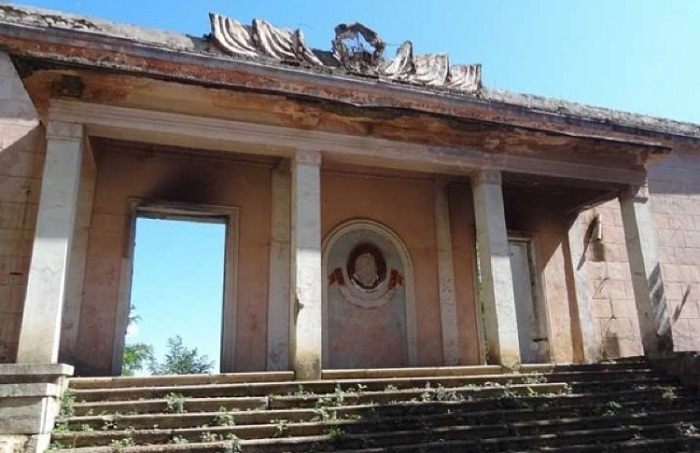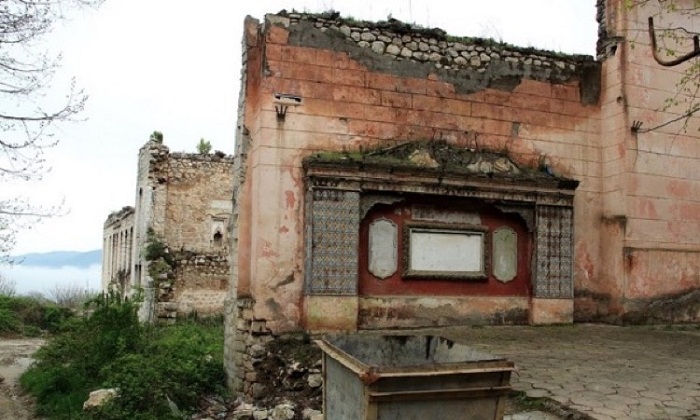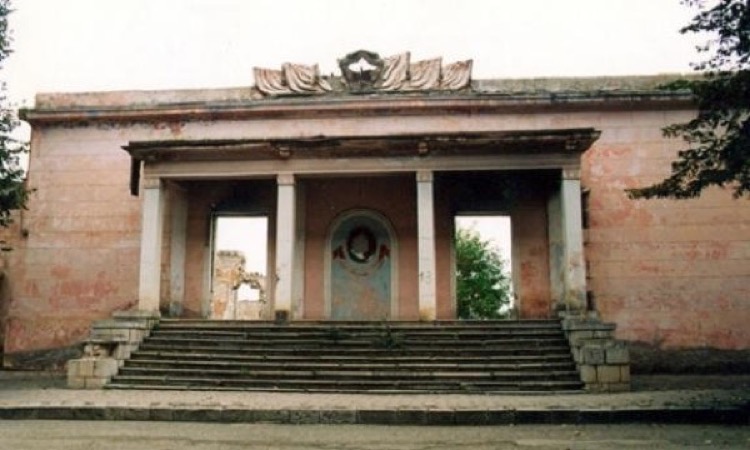Armenian vandalism in Shusha
Shusha Music School

History of the Karabakh music has always occupied an important place in the history of Azerbaijani culture and stood out by its antiquity and originality. Since ancient times, music was widely used in public celebrations and spiritual processions in Karabakh. Starting from the first half of the nineteenth century, the performing arts rapidly evolved in Karabakh, especially in the heart of the region – the city of Shusha. Compared to other cities of Azerbaijan, Shusha had far more musicians, singers, and dancers. The famous Russian musicologist Victor Vinogradov, who was engaged in the study of the Azerbaijani music history, wrote about the city: “Since ancient times Shusha has been known as the music center and it became famous in the whole Transcaucasia as an inexhaustible school of folk music talents. Shusha musicians created the history of Azerbaijani music and presented it not only in their homeland but also in other countries of the East.”
In 1870-the 1880s, various musical meetings, clubs, and schools were opened in Shusha. Eminent Azerbaijani singers Kharrat Gulu and Molla Ibrahim were the creators of the music school in Shusha. Later, the famous singer Haji Husu and musicologist Mir Mohsun Navvab created the Society of Musicologists in the city. Since then, groups of singers were performing songs in intervals between theatre performances, and in the early 20th century they started giving independent concerts on stages.
Based on this tradition, on October 10, 1932, Shusha Music School, the first children’s music school, was established in Azerbaijan on the initiative of Bulbul, the founder of Azerbaijan’s vocal art. This musical school was operating in the Khurshudbanu Natavan’s House. Since 1984, this school was renamed the Shusha Children’s Art School named after Niyazi. However, After the occupation of Shusha by the Armenian Armed Forces in 1992, Shusha Music School was torn down.
- Shirinov, Rashid, History of Karabakh music, AZERNEWS, 06 April 2018. https://www.azernews.az/nation/116386.html.
- “Shusha Region”, Armenian Vandalism: Azerbaijani Monuments in Captive. https://www.armenianvandalism.az/en_shusha.html.



